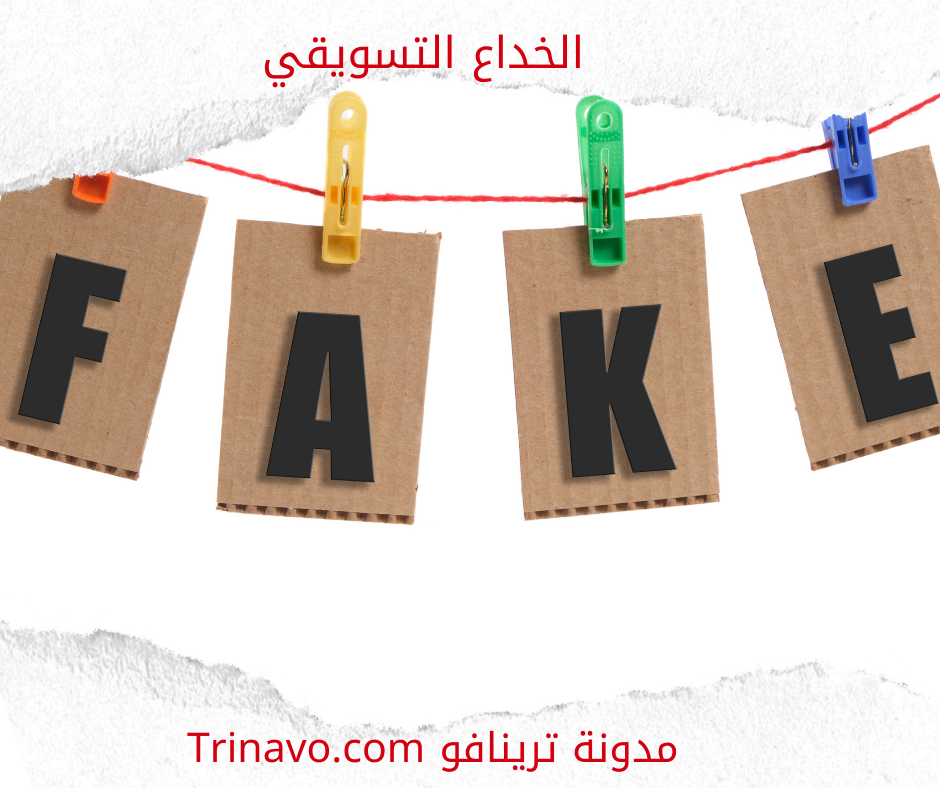Marketing deception
Marketing deception is one of the types of marketing that relies on misleading and unrealistic content, as companies use this marketing To promote About products with inaccurate specifications that do not apply to the product, and as a result of these allegations, consumers buy the product, which may be counterfeit or have some defect.
Read also the stages of marketing development.
Types of marketing deception
To avoid falling into marketing deception, you must know the different types of misleading and deceptive advertisements, in addition to learning about the methods that marketers use to promote misleading advertising, and this can be known through the following points.
- Promoting a product that provides services that are not compatible with it
When you find a company promoting a product that performs a role or a service that does not exist in reality, or achieves things that cannot be achieved, or brings a benefit that does not occur or is incorrect, you can be sure that this advertisement is misleading and falls under the heading of marketing exploits.
- Contrasting comparisons
It may happen that a company compares its products with products of a well-known brand without providing sufficient evidence or with signs that they are of lower quality than those with which its products are compared.
- Use bait
It is through marketing a product that has high specifications and quality, while in reality when selling this product, it is of a much lower quality than that which was advertised, which is called bait and switch.
- Advertising environmentally friendly products
Sometimes some companies advertise that their products are environmentally friendly, while these products cannot in any way be manufactured with environmentally friendly materials, so this act falls under marketing deception.
- Use fake news sites
Deceptive marketers sometimes hide their schemes with websites that pretend to be official news sources. They sometimes use logos from well-known media outlets to make the sites appear legitimate. News articles appear as advertisements touting the benefits of a product, and may be supplemented with articles featuring real news. About politics or economics, for example, writing an advertisement under a news item that prompts the reader to access links to free trial offers, or advertising the existence of deadlines for registration in short-term offers.
- Free trials
Another policy of marketing deception is:
Ads that claim to offer free product trials will be deceptive if there are hidden fees to become part of the offer when you try the product. While consumer protection laws stipulate that anything advertised as free must not cost consumers any money, companies use... This is an often misleading online practice of getting consumers to choose a free trial offer in exchange for credit card information. These companies then ship goods to buyers' accounts without their consent, only to discover that the consumer has been charged a high fee for this free product.
- Subscription and membership plans
Another type of marketing deception, which is to attract consumers to purchase many products for a very small amount of money, such as offering five products for the price of one product, but they do not announce that obtaining the offer requires paying a subscription to the site or purchasing a membership, which is considered advertising. Misleading as advertisers must make it clear whether plans contain a subscription requirement, and must explain how to cancel a subscription and membership or decline to receive products.
How to detect marketing deception in advertisements
In marketing deception, false advertising methods are designed to deceive consumers and push them to buy these bad products. Knowing these methods and methods and knowing the different types of deceptive advertising are important points for identifying bad products. Below we explain some methods that will help you identify marketing deception. .
- Offering the product at low prices compared to the type of product
- If you purchased a product based on the specifications that were advertised and discovered that the product does not match the specifications of the advertisement, you have most likely fallen victim to marketing deception.
- Fake online reviews of products being marketed are overwhelmingly positive and do not provide a realistic context for marketing deception tactics, because even the most popular products have some bad reviews from real consumers, so rest assured that most of the products being marketed are false. Misleading You will find good reviews which are made by fake accounts.
- If you visit customer service to inquire about something related to the product they are advertising and do not receive a response from them, it is also possible that they are practicing marketing deception.
- Before that, misleading companies can only be identified by identifying their tax records. If they are not registered with the official authorities, there is a possibility that they are a misleading company.
Therefore, marketing deception is various methods of misleading advertising that illegally push consumers to make purchases. In order to avoid falling into such marketing tricks, you must not be led by offers that rely on tempting and misleading the consumer.

